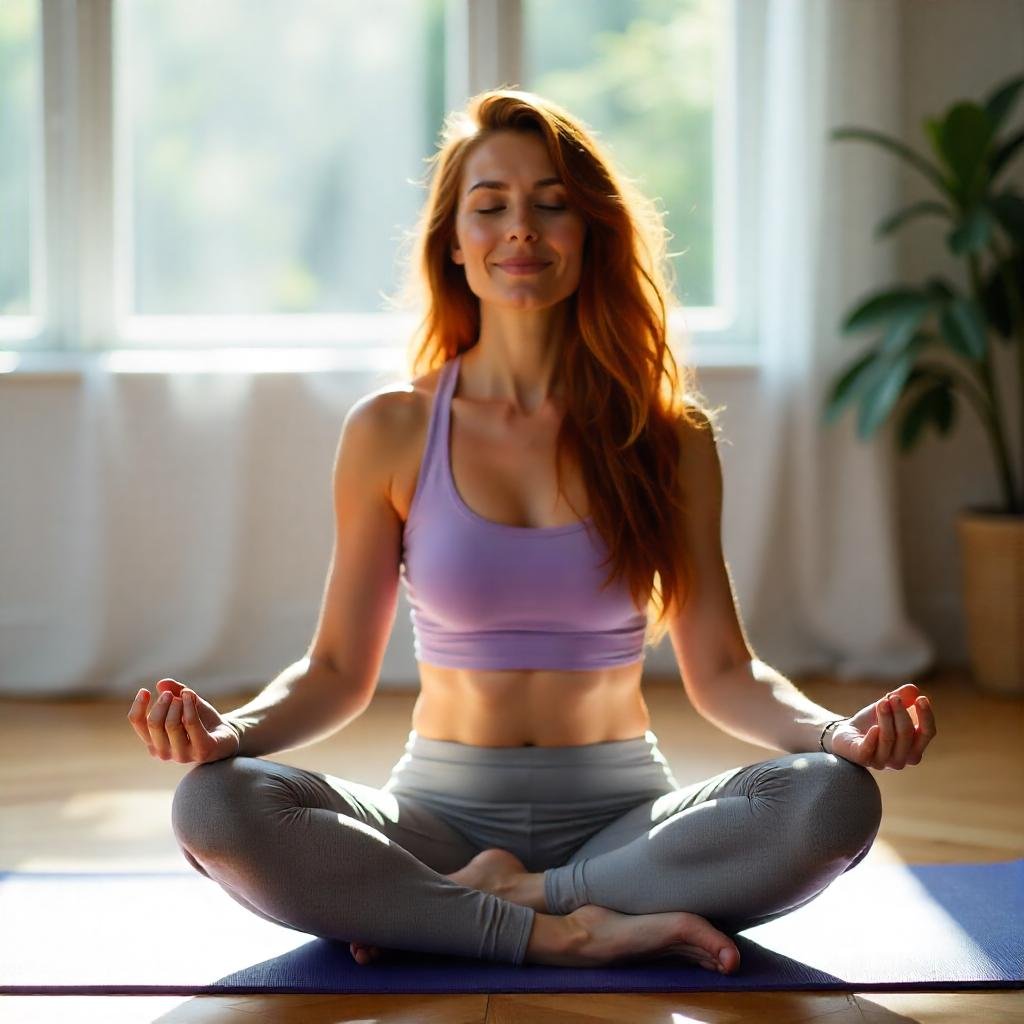Anxiety can feel like an unwelcome guest that never quite leaves. Whether it shows up as racing thoughts, a tight chest, or just a general sense of unease, you’re not alone—and you’re not powerless. The good news? There are plenty of practical, science-backed mental health tips for anxiety that can help you feel more in control.
In this guide, we’ll explore simple, effective strategies to manage anxiety naturally. You’ll get expert advice, a relatable case study, and answers to common questions people ask online.
Why Managing Anxiety Matters
Before diving into tips, let’s talk about why it’s so important to take anxiety seriously.
Effects of Anxiety on Daily Life:
- Trouble sleeping
- Poor concentration
- Physical symptoms like headaches or muscle tension
- Relationship strain
- Increased risk of burnout or depression
Ignoring anxiety doesn’t make it go away—but small daily actions can make a big difference.
Daily Mental Health Tips for Anxiety Relief

These tips are simple enough to start today, but powerful enough to create lasting change.
Practice Deep, Intentional Breathing
One of the fastest ways to calm your nervous system is to breathe deeply.
Try This:
- Inhale through your nose for 4 seconds
- Hold for 4 seconds
- Exhale slowly through your mouth for 6 seconds
- Repeat for 2-3 minutes
This activates your parasympathetic nervous system, signaling your body to relax.
Stick to a Routine
Consistency can reduce anxiety by creating a sense of structure.
Benefits of a Daily Routine:
- Predictability lowers stress levels
- Helps regulate sleep and eating habits
- Gives your brain fewer decisions to worry about
Start Simple:
- Wake up and go to bed at the same time
- Plan meals and breaks
- Schedule time for rest and hobbies
Move Your Body
Exercise is a natural anti-anxiety treatment.
Top Forms of Exercise for Anxiety:
| Activity | Why It Helps |
|---|---|
| Walking | Boosts mood, clears your mind |
| Yoga | Combines movement with calm |
| Dancing | Releases endorphins, boosts joy |
| Strength training | Improves focus and resilience |
| Swimming | Rhythmic and meditative |
Aim for at least 20-30 minutes of physical activity most days of the week.
Limit Caffeine and Sugar

What you consume affects how you feel.
Why Cut Back:
- Caffeine can increase heart rate and trigger anxiety
- Sugar highs lead to crashes that can affect mood
Healthy Swaps:
- Herbal teas instead of coffee
- Whole fruits instead of processed snacks
- Water or sparkling water instead of soda
Calming Your Mind: Mental Techniques That Work
Try Journaling
Writing down your thoughts can be incredibly therapeutic.
Journaling Prompts for Anxiety Relief:
- What’s worrying me right now?
- What do I know to be true about this?
- What can I control today?
Even 5 minutes of journaling can bring clarity and calm.
Practice Mindfulness or Meditation
Being present helps stop your brain from spiraling into “what ifs.”
Beginner-Friendly Options:
- Guided meditations via apps (like Calm or Insight Timer)
- 3-minute body scans
- Simply observing your breath for 1-2 minutes
Use Positive Self-Talk
Your inner voice matters.
Switch This Thinking:
| Unhelpful Thought | Reframed Thought |
| “I can’t handle this” | “I’m doing the best I can right now” |
| “Everything will go wrong” | “I can take it one step at a time” |
| “I’m weak for feeling this” | “Anxiety is tough, but so am I” |
Real-Life Case Study: How Jake Manages His Anxiety
Meet Jake, a 28-year-old customer service rep from Austin.
Challenge: Jake often felt overwhelmed at work and couldn’t sleep due to racing thoughts. He didn’t want to rely solely on medication.
What He Did:
- Started journaling for 10 minutes each night
- Replaced afternoon coffee with herbal tea
- Went for a walk during lunch breaks
- Practiced breathing exercises before stressful meetings
Results After 8 Weeks:
- Fewer anxiety attacks
- Improved sleep
- Felt more confident at work
- Built daily habits that felt sustainable
Jake didn’t “cure” his anxiety, but he gained tools to manage it—and you can, too.
Creating Your Own Anxiety Toolkit

Here’s a checklist you can use to build your personalized mental wellness plan:
Daily Anxiety Toolkit:
You don’t need to do all of these at once—start with one or two and build from there.
FAQ: Mental Health Tips for Anxiety
What is the fastest way to calm anxiety?
Deep breathing and grounding techniques (like naming five things you see) can calm anxiety in minutes.
Can food really affect anxiety?
Yes! Diets high in sugar, caffeine, and processed foods can increase anxiety. Nutrient-dense foods support brain health.
Should I talk to a therapist?
If anxiety is interfering with your life, talking to a licensed professional can be incredibly helpful. Therapy gives you tools and support.
Are apps helpful for anxiety?
Many people find apps like Headspace, Calm, and Moodnotes useful for guided meditations, tracking moods, and learning coping techniques.
Can anxiety go away on its own?
Sometimes, but often it requires action. Building daily habits, seeking support, and learning tools can make a big difference.
Final Thoughts: You Deserve to Feel Calm and in Control
Managing anxiety isn’t about eliminating stress completely—it’s about learning how to respond to it. By using these mental health tips for anxiety, you’re taking steps toward greater peace, resilience, and confidence.
You don’t need to change everything overnight. Small, consistent actions lead to real results. Remember: your mental health matters, and help is always within reach.
Start now. Pick one tip that speaks to you and give it a try today.
More Related Articles
How to Reduce Stress Naturally: Proven Strategies for a Calmer, Healthier Life







